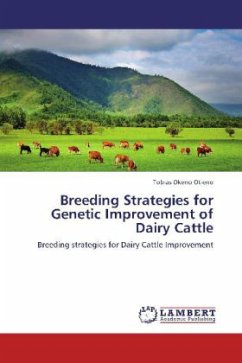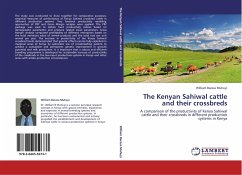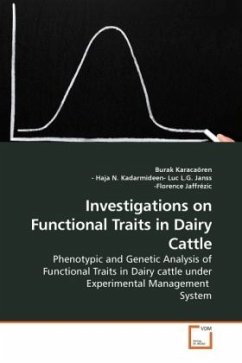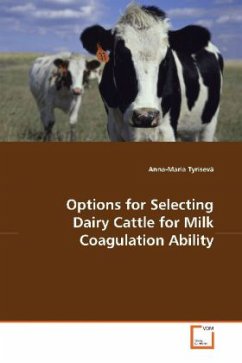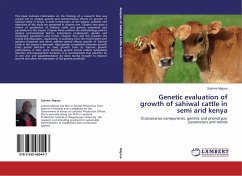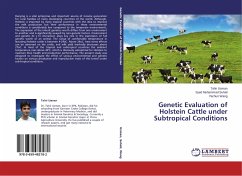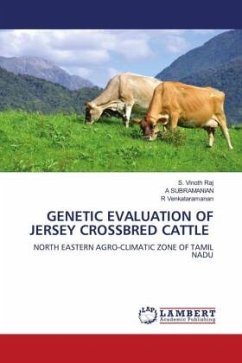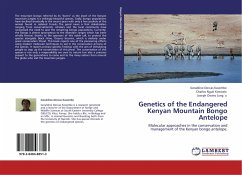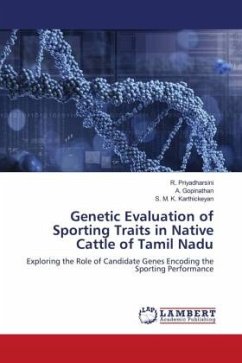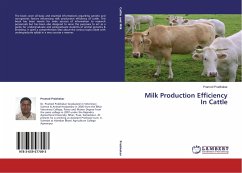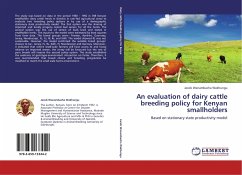
An evaluation of dairy cattle breeding policy for Kenyan smallholders
Based on stationary state productivity model
Versandkostenfrei!
Versandfertig in 6-10 Tagen
39,99 €
inkl. MwSt.

PAYBACK Punkte
20 °P sammeln!
The study was based on data in the period 1980 - 1992 in 398 Kenyan smallholder dairy cattle herds in districts in rain-fed agricultural areas to evaluate two breeding policy options in by use of a demographic stationery state productivity model. The first option was the sharing of imported and locally progeny tested bull semen for all the herds. The second option was the use of semen of bulls bred and tested in smallholder herds. The inputs to the model were estimated by least squares from farm data. The breed groups were:- Friesian, Ayrshire, Guernsey, Jersey, Nondescript, FL, Fs, RL Rs; and...
The study was based on data in the period 1980 - 1992 in 398 Kenyan smallholder dairy cattle herds in districts in rain-fed agricultural areas to evaluate two breeding policy options in by use of a demographic stationery state productivity model. The first option was the sharing of imported and locally progeny tested bull semen for all the herds. The second option was the use of semen of bulls bred and tested in smallholder herds. The inputs to the model were estimated by least squares from farm data. The breed groups were:- Friesian, Ayrshire, Guernsey, Jersey, Nondescript, FL, Fs, RL Rs; and Kilifi. The model showed RL was not sustainable. However, the model confirmed the suitable breed groups' choices to be:- Jersey, Fs, Rs, Kilifi, Fl, Nondescript and Gernsey. Moreover, it indicated that where small-scale farmers will have access to and heavy reliance on imported semen, the Jersey will be favoured but the rest of pure breeds will require the second policy option. The study established the existence of genotype-environment interaction on farms. Therefore, it was recommended that breed choice and breeding programme be modified to match the small scale farms environment.



